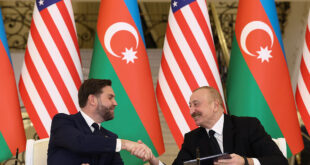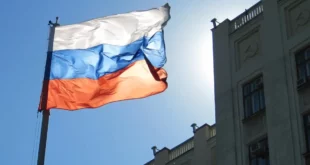 MOSCOW (Reuters) – Russia said on Saturday it had no plans for a major build-up of forces following its decision to freeze compliance with the Conventional Forces in Europe (CFE) treaty.
MOSCOW (Reuters) – Russia said on Saturday it had no plans for a major build-up of forces following its decision to freeze compliance with the Conventional Forces in Europe (CFE) treaty.
“Russia does not plan any extraordinary expansion of forces that would pose a threat to other states,” Interfax news agency quoted Deputy Foreign Minister Sergei Kislyak as telling a news conference in Moscow.
Russia suspended on Wednesday its participation in the CFE, designed to limit weapons levels on either side of the old Iron Curtain, because it believes the Cold War-era pact gives too much scope to an enlarged NATO to beef up its forces.
General Yuri Baluyevsky, Russia’s chief of staff, said there would be no “massive arms build-up” and urged the West to take the CFE moratorium seriously.
“This is not a bluff, but an objective necessity,” Baluyevsky told the same news conference. “The USA and NATO are using it (the CFE) as a lever to exert pressure on Russia.”
Kislyak said the step did not mean Russia would halt its security dialogue with the West.
“The introduction of the moratorium is not the end of the story. But the dialogue should be serious,” he was quoted by Interfax as saying.
Western capitals regard Russia’s move as another sign of the assertive approach to foreign policy under President Vladimir Putin, who discussed security with his Belarusian ally Alexander Lukashenko in Minsk on Friday.
Moscow has also taken a tough stance against Washington’s plans for a missile defense shield in Poland and the Czech Republic, once part of the Warsaw Pact but since 2004 members of the North Atlantic Treaty Organization (NATO).
“Concerning the CFE and the missile defense that our American colleagues intend to site in Europe — and this is the first time that a strategic component will be located near our border — there is no satisfactory progress,” Kislyak said.
Russia’s biggest grievance with the CFE treaty is that it restricts Moscow’s freedom to deploy troops and weapons west of the Ural mountains, but it does not cap armaments in new NATO members in eastern Europe.
Russia has watched NATO’s eastward expansion with unease and its concern has heightened as Washington prepares to open bases in new alliance members Bulgaria and Romania.
Policymakers in Moscow also fear NATO forces could be deployed in one of the ex-Soviet Baltic states, within striking distance of Russia’s second city, St Petersburg.
 Eurasia Press & News
Eurasia Press & News



